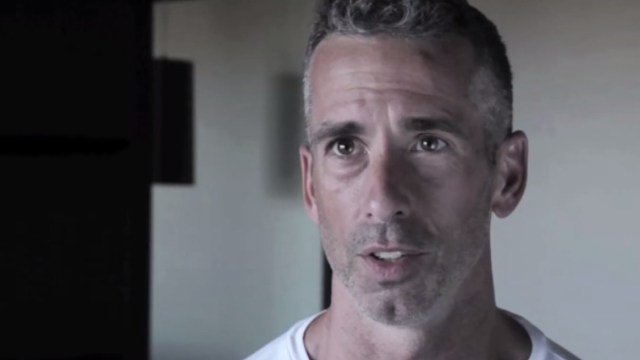The Messiah Arrives. In Tennessee.

When Jaleesa Martin brought her seven-month-old child, Messiah, to the Cocke County Chancery Court in August, she was waging a battle with her son’s father for rights to his last name. Little did she know that Lu Ann Ballew, a child support magistrate at that office, would declare that she must change his first name.
‘I thought out into the future,’ Ballew told USA Today. ‘The word ‘messiah’ is a title and it’s a title that has only been earned by one person. And that one person is Jesus Christ.’
Well, no, Judge, the title ‘messiah’ has been earned by quite a few people over the centuries. Adapted from the Hebrew mashiach, a messiah was a king or high priest anointed with holy oil. Cyrus the Great was titled a messiah in the Bible, for one, after stating that the Jerusalem Temple would be rebuilt.
Cyrus was not the only non-Jewish king anointed with this moniker. In fact, it is used in a variety of situations, such as in reference to unleavened bread and the utensils of the Jewish temple. It was not necessarily the person that mattered; the act of anointing is what is most significant to the term ‘messiah.’
Not only do Jews and Christians have stock in the term: Muslims believe Jesus Christ to be a messiah—in fact, one of the laughable contentions between Islam and Christianity is that Muslims says he is a messiah, while Christians demand that he is the messiah—who will return to earth to beat the hell out of Satan on Yawm al-Qiyamah.
What use does a judge have for facts, however? Ballew was, first and foremost, concerned with the child’s welfare, not her own religious bias. Noting that the town he would grow up in was ‘very Christian,’ she commented,
It could put him at odds with a lot of people and at this point he has had no choice in what his name is.
Unless your father is Frank Zappa, or you begin practicing Kundalini yoga and adopt Singh or Kaur as your surname, nobody has a choice as to what their name is. That is something dependent upon your parents—a decision that Ballew has stripped Jalessa Martin from exercising.
Regardless of the historical context, the general undertone of the word ‘messiah’ implies leadership. In the past it has been used as a signal for forthcoming sages in the Jewish, Christian and Islamic traditions. Most spiritual practices have some form of this, including Buddhism, whose forthcoming leader is Maitreya.
It can be argued that in each of these, the ‘emerging’ figure is the individual who has self-realized, uniting the separated ground between what one perceives to be the highest spiritual order and what one is. This concept is well known in Zen archery, where no space between the arrow and the target exist. (This imagery also works in the conceptual background of the yoga Warrior postures.)
That is not to distract from those who really do believe that some historical figure is ‘returning’ to claim dominion over the heavens and earth. I would have to guess this is what Ballew believes, or else she would not have attempted to stop a mother from anointing her son with whatever name she chooses.
Following Ballew’s logic, who’s to say this young Messiah is, in fact, not the returning Savior she’s been dreaming of? What if this disembodied soul has ‘chosen’ this baby’s body to reincarnate, psychically convincing Jaleesa to title him properly for his descending into Tennessee? Would he then turn his mystical thunderbolt towards Judge Ballew’s house to claim his revenge?
I’m partial to Jaleesa’s explanation: she likes the name. It flowed nicely with those of her other two sons. Why complicate something so simple?
We can hope it will not be complicated further. Jaleesa Martin has appealed; the case will be heard on September 17. Let’s hope that judge will display a little more integrity for the law, as well as for common sense.
Image: Callahan/shutterstock.com





